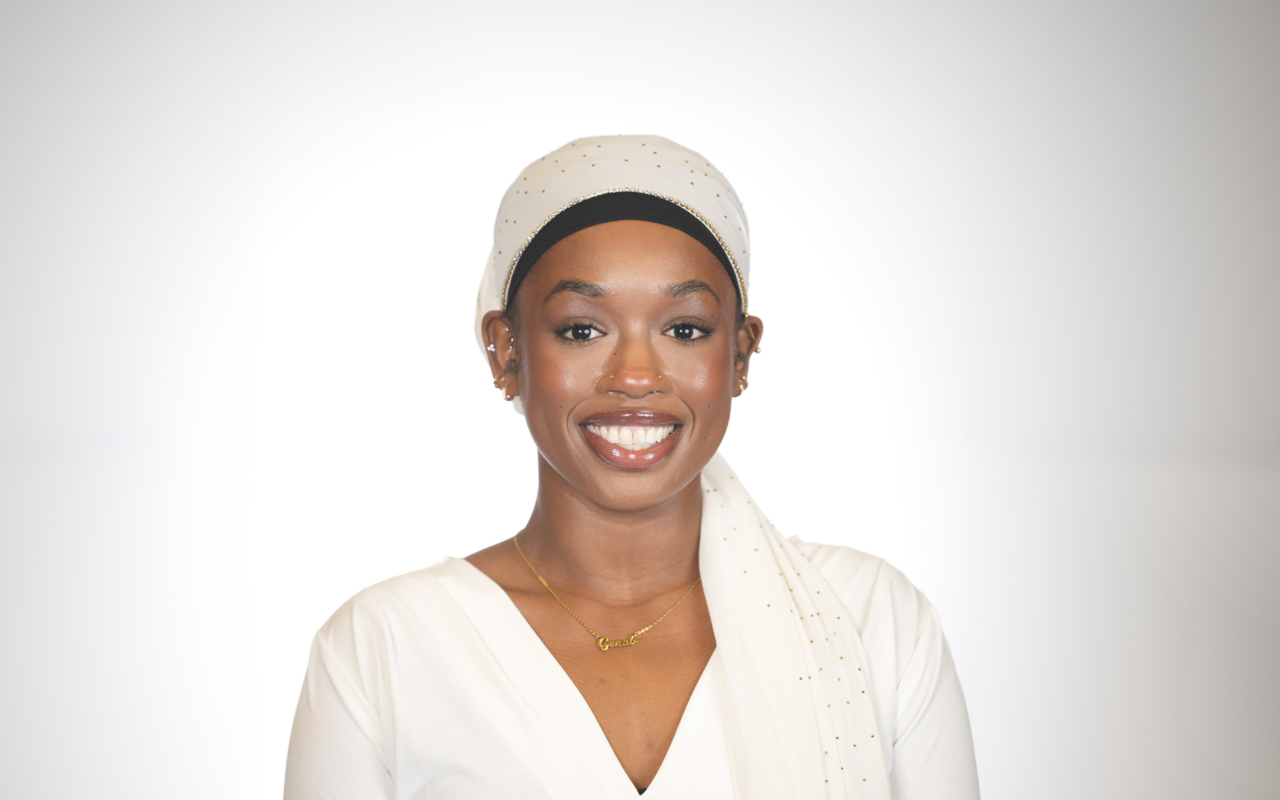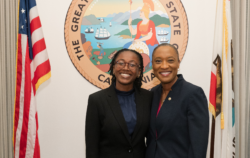
F&M Scholar Wins Health Equity Research Award
Genab Diallo, a senior at Franklin & Marshall College, recently received the 2024 Williams-Hutchins Health Equity Award for her research addressing maternal health disparities among Black women. The prize, awarded by the Center for Disease Control’s Office of Health Equity for “exceptional projects that advance healthy disparity science,” recognizes her outstanding contributions to public health, particularly her exploration of the role doulas play in improving birth experiences and health outcomes for underserved mothers.
Genab’s interest in public health began with a desire to address racial disparities in healthcare. Her passion grew during an internship with a maternal health organization, where she witnessed the impact of doulas—trained professionals who provide support during pregnancy and childbirth.
Through my research, I hope to ensure all mothers, regardless of their identity, receive the care they deserve.
“I saw how vital it was for these mothers to have someone advocating for them in a healthcare system that often fails to meet their needs,” she explained. “My mom has five kids, and she delivered us all naturally – it is sobering to realize that the odds against her survival were so high.”
Genab’s winning research project involved a literature review of 12 scholarly articles, focusing on quantitative research to explore how doula services impact maternal health outcomes. Her research found that the use of doulas lowers Cesarean deliveries, reduces the need for pharmaceutical interventions such as epidurals, and increases breastfeeding rates.
“Doula services aren’t just helpful—they are essential for addressing key racial maternal health disparities,” she noted. “Research validates those findings and makes it easier to argue the medical necessity of a doula during the labor process.”
Looking ahead, Genab plans to pursue a master of public health degree, ideally at Columbia University.
“My time in New York and at Columbia made me realize how important connections and support are in public health,” she shared. "Ultimately through my research, I hope to ensure all mothers, regardless of their identity, receive the care they deserve.”

